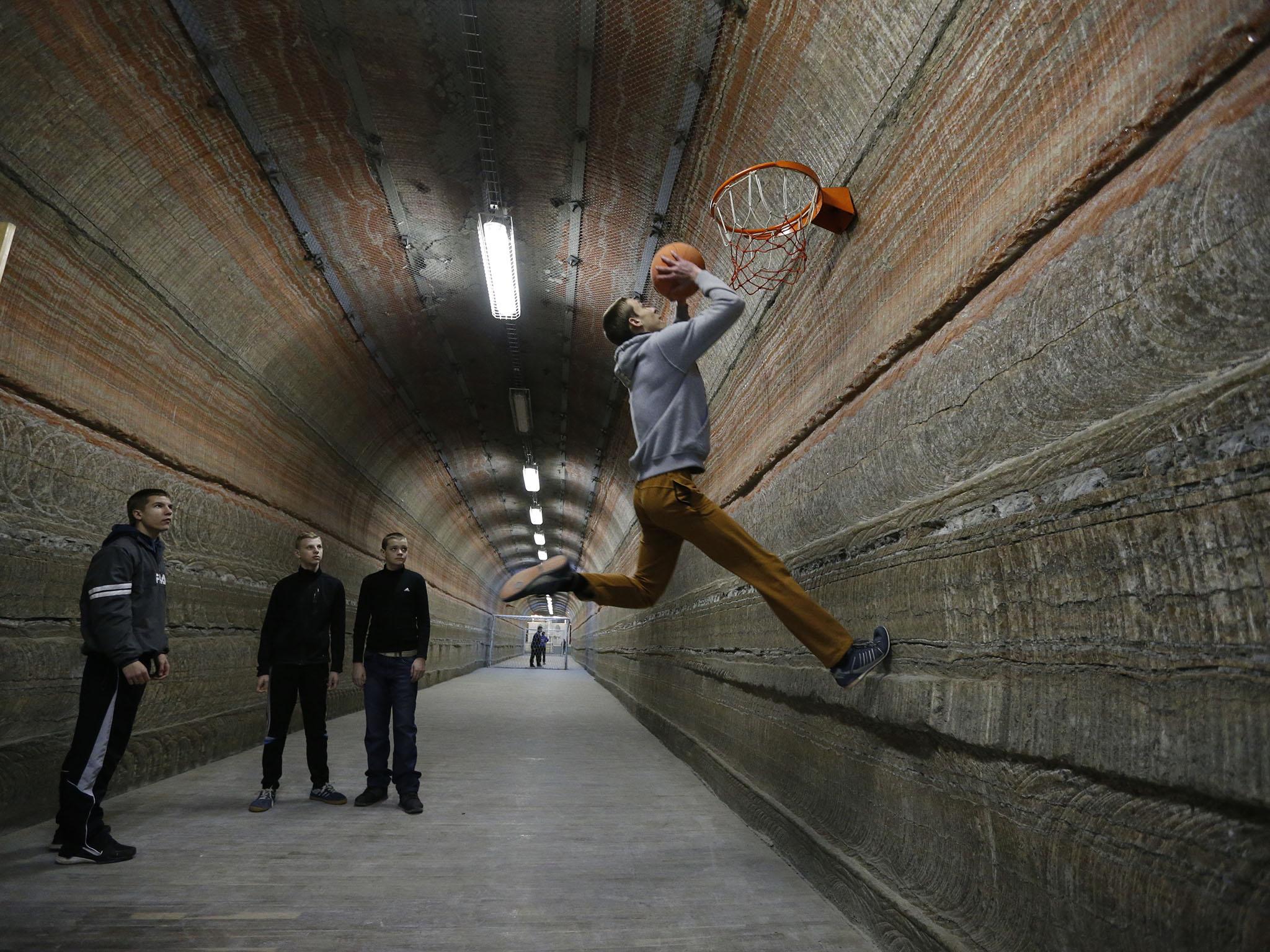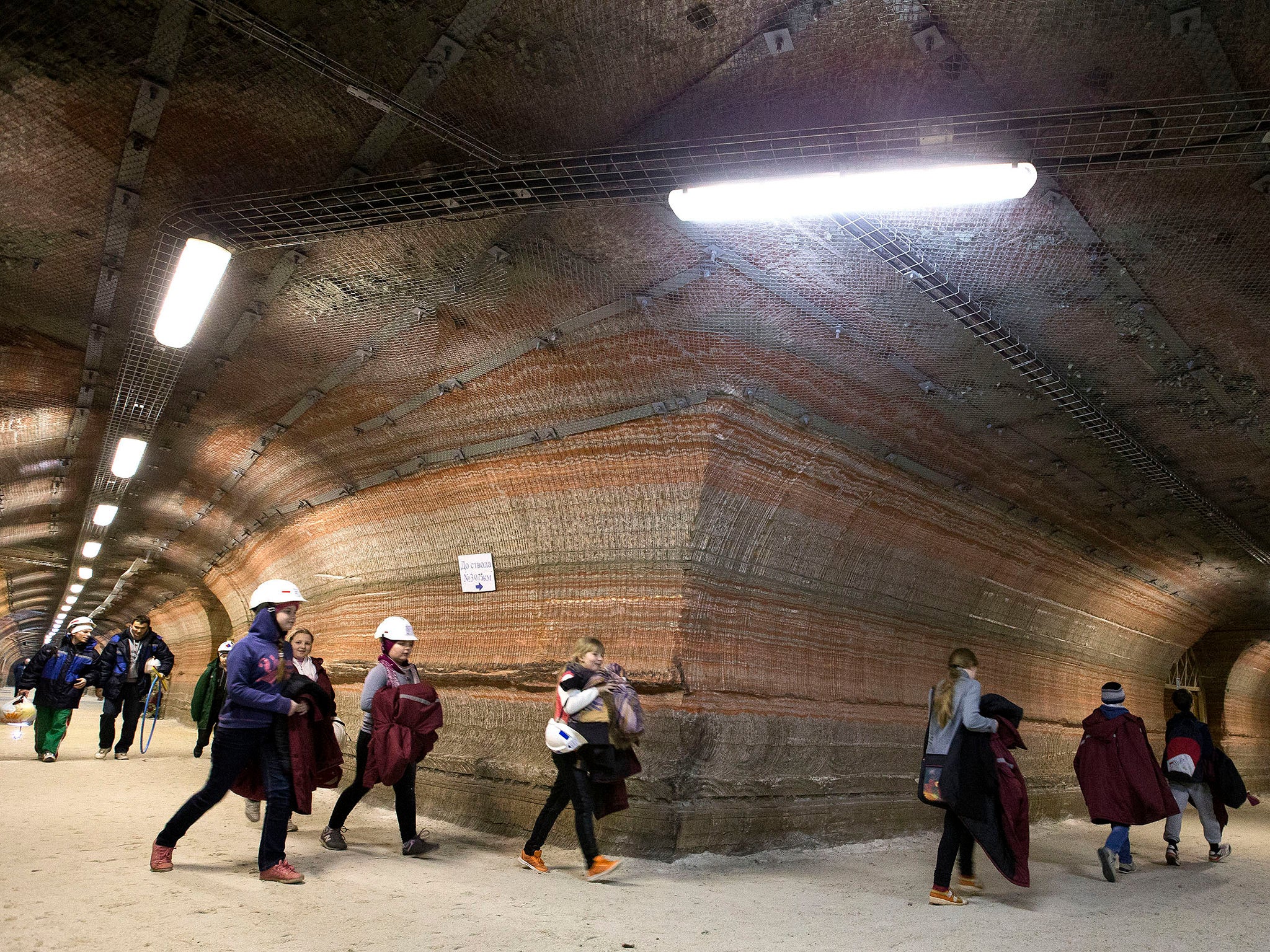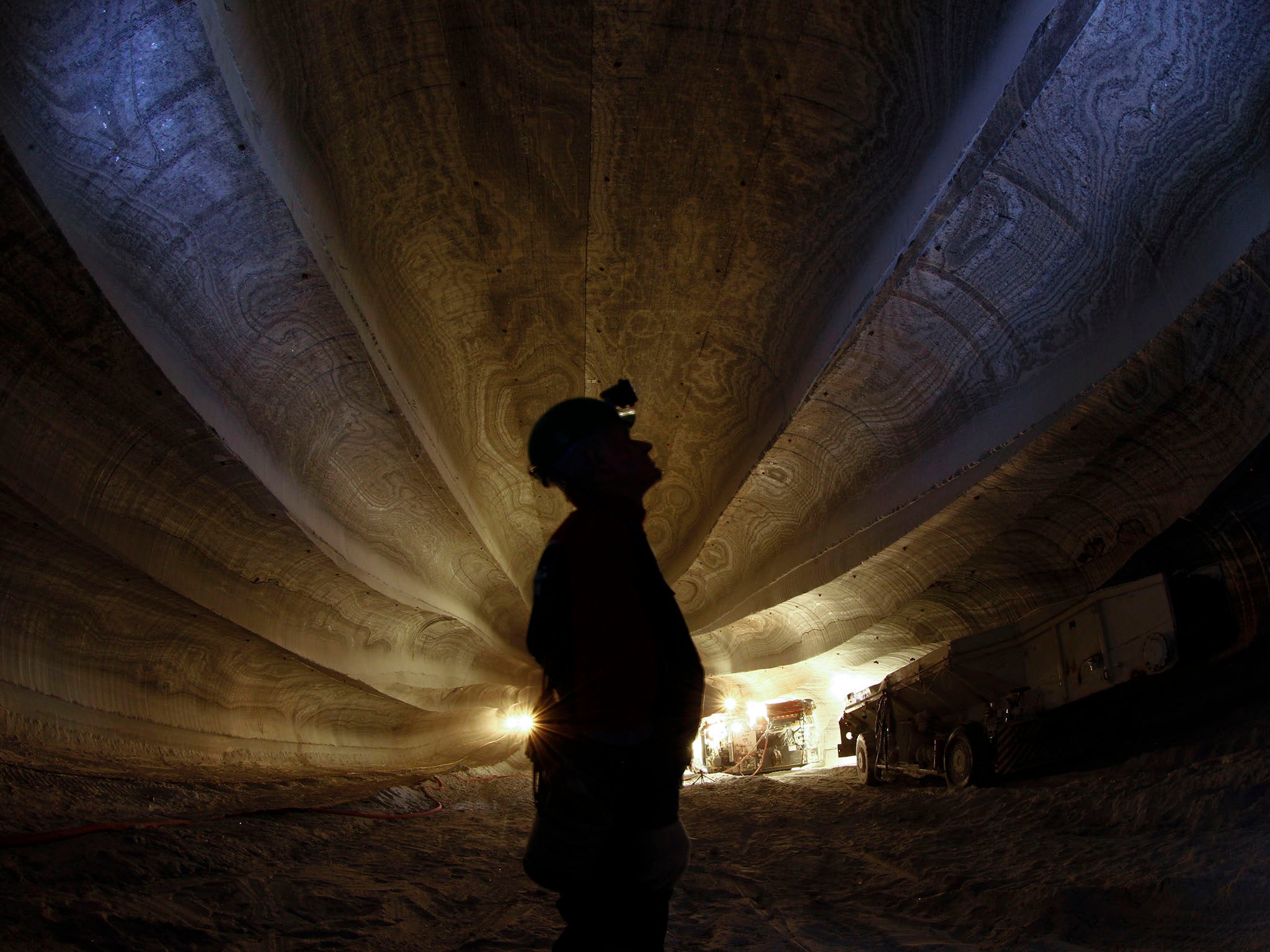Belarus’s salt mines have a whole host of healing powers, say local residents
For some they bring back memories of war camps, but, as Andrew Higgins finds out, for many they are a prized source of advanced medical treatments

Your support helps us to tell the story
From reproductive rights to climate change to Big Tech, The Independent is on the ground when the story is developing. Whether it's investigating the financials of Elon Musk's pro-Trump PAC or producing our latest documentary, 'The A Word', which shines a light on the American women fighting for reproductive rights, we know how important it is to parse out the facts from the messaging.
At such a critical moment in US history, we need reporters on the ground. Your donation allows us to keep sending journalists to speak to both sides of the story.
The Independent is trusted by Americans across the entire political spectrum. And unlike many other quality news outlets, we choose not to lock Americans out of our reporting and analysis with paywalls. We believe quality journalism should be available to everyone, paid for by those who can afford it.
Your support makes all the difference.Yury Lukashenia, a 40-year-old manager in an Austrian company in Belarus, a country often described as Europe’s last dictatorship, earns enough money to take his family on regular holiday getaways to sunny places like Spain and Greece.
But the trip he really looks forward to each spring is a two – or, if he is really lucky, three-week stint in a Belarus salt mine in Salihorsk.
“Of course, the first time, it was a little scary,” he says, recalling his debut journey on a rickety, unlit elevator that rattled 460 yards underground into a dimly lit warren of caves and tunnels gouged from one of the world’s biggest deposits of salt and potassium.
But now on his sixth trip to Salihorsk, the jewel of the former Soviet Union’s salt mining industry, Lukashenia, who suffers from allergies that make it difficult to breathe, says he wouldn’t miss his annual trek for anything.
“I feel better as soon as I get here,” he says. “It is much better to spend two or three weeks in a salt mine than sitting on a yacht.”
He has tried getting his wife to join him but she suffers from claustrophobia so is not interested. She prefers a sunny beach to a dark hole in the ground. Nor are any of his friends eager to tag along.
“When I tell my friends I’m going to the salt mines, they always ask: ‘What did you do wrong?’”
In Belarus and across the former Soviet Union, the suggestion of a visit to the salt mines generally evokes grim memories of prison camps. Today, however, the Belarus mines have been rebranded as a health cure, an idea supported by the country’s longtime authoritarian leader, Alexander Lukashenko.
The notion that salt mines can be curative is not new: the phenomenon started in neighbouring Poland in the early 19th century at the Wieliczka Salt Mine, which still operates a health resort.
Around 4,000 people a year, including Lukashenia, now visit the National Speleotherapy Clinic, a hotel-like compound in Salihorsk, a mining town 80 miles south of the Belarus capital, Minsk. The clinic first opened just months before the 1991 collapse of the Soviet Union but has grown steadily since.

Half its visitors are from Belarus, whose stay is covered by the country’s national health system, and the other half foreigners, mostly Russians, who pay their own way, around £790 for a two-week stay.
Other places, including a recently opened nearby spa, offer rooms pumped with salt-infused air but only the clinic provides daily visits deep into the still-active salt mine, says Natalia Dubovik, the deputy director.
Buses shuttle visitors, dressed in heavy coats and hard hats, to the mine head for a six-hour afternoon shift underground and, for the really hardcore, a longer overnight shift. Miners and patients cross paths in the waiting area for elevators and on the walk to the sleeping chambers.
Lights go out in the mine at 10pm and then come on again at 5.45am, when the salt catacombs start trembling with jaunty polka music, somebody’s idea of a soothing wake-up call.
To help visitors pass the time, cavernous corridors in the salt mine contain ping pong tables, a volleyball court and a jogging track. There is no television or internet.
We don’t want tourists. People who come here have to be motivated. They have to be sick. We don’t want healthy people
“We offer total isolation from the world,” Dubovik explains. “But like any treatment, it is important to get the dose right. You can’t overdo it.”
The salt mine used by the clinic belongs to the state-owned Belarus Kali, the country’s biggest company and one of the world’s largest producers of potash fertilisers, which are made from potassium. Mountain-like mounds of salt and potassium ring the town.
Even on a beautiful spring day, the place looks more like a Soviet industrial wasteland than a health resort. The streets are eerily clean, as they are across Belarus. Concrete apartment blocks are painted with murals celebrating miners, and the only advertising billboards are for cement.
But salt treatment for asthma, allergies and various respiratory ailments has proved so popular that Belarus Kali, the mining company, recently opened its own for-profit spa next to the clinic.
Pavel Levchenko, a Minsk surgeon who runs the clinic, insists that his own establishment is not a spa or a sanitarium but a serious medical facility. Staff members wear white medical coats and have qualifications as doctors, nurses and other medical professionals. Visitors are called patients, not guests.
“We don’t want tourists,” he says. “People who come here have to be motivated. They have to be sick. We don’t want healthy people.”

Lukashenia says he certainly qualified on that score, explaining how he had suddenly developed ferocious allergies after gorging himself on cherries. He had to stop eating fruits and had so much trouble breathing he often could not sleep.
“Here I sleep like a baby,” he says.
Being totally cut off from sunlight, cellphones and the internet relieves stress and helps his condition, he says, but most important is the tangy air.
He acknowledges being initially “really sceptical” but was amazed how quickly he started breathing normally again.
The scientific jury is still out on whether salt mine therapy really works, but health authorities in Belarus are convinced that their country, despite its reputation for retrograde politics and repression, is on the cutting edge of medical innovation.
Levchenko, the clinic’s director, acknowledges that he was not initially a believer himself.
I meet lots of people who think this is all fake. I was very sceptical myself at first, but I have seen how well it works
“I meet lots of people who think this is all fake,” he says. “I was very sceptical myself at first.” But, he adds, “I have seen how well it works.”
Time in the salt mine, he adds, does not cure visitors of their ailments but “puts them into remission”.
So far, the only regular foreign visitors are Russians, though an American is said to have stayed once and left satisfied.
Nadezhda Vasilenko, 58, a Russian woman from the southern region of Krasnodar who suffers from asthma, says she visited the mine last year after hearing about it from her son, who works in Minsk.
“I felt so much better so decided to come again,” Vasilenko says, sitting with a group of other women in a cave-like sleeping compartment deep underground.
As well as the pure air there is also camaraderie.
Friendships forged underground are very strong, says Zhanya Sakanchuk, an asthma sufferer from the Belarus town of Pinsk, who has visited every year since 2012, when she saw a television report about President Lukashenko visiting the facility.
She says she was desperate for help, having lost her only child to illness, which sent her into a deep depression and shattered her health.
Bubbling with enthusiasm for the joys of sleeping in the salty catacombs of Belarus, she says she was not really sure why she felt so much better but would definitely keep coming back.
“Maybe it is all just the placebo effect but the salt mine saved my life,” she says.
© New York Times
Join our commenting forum
Join thought-provoking conversations, follow other Independent readers and see their replies
Comments